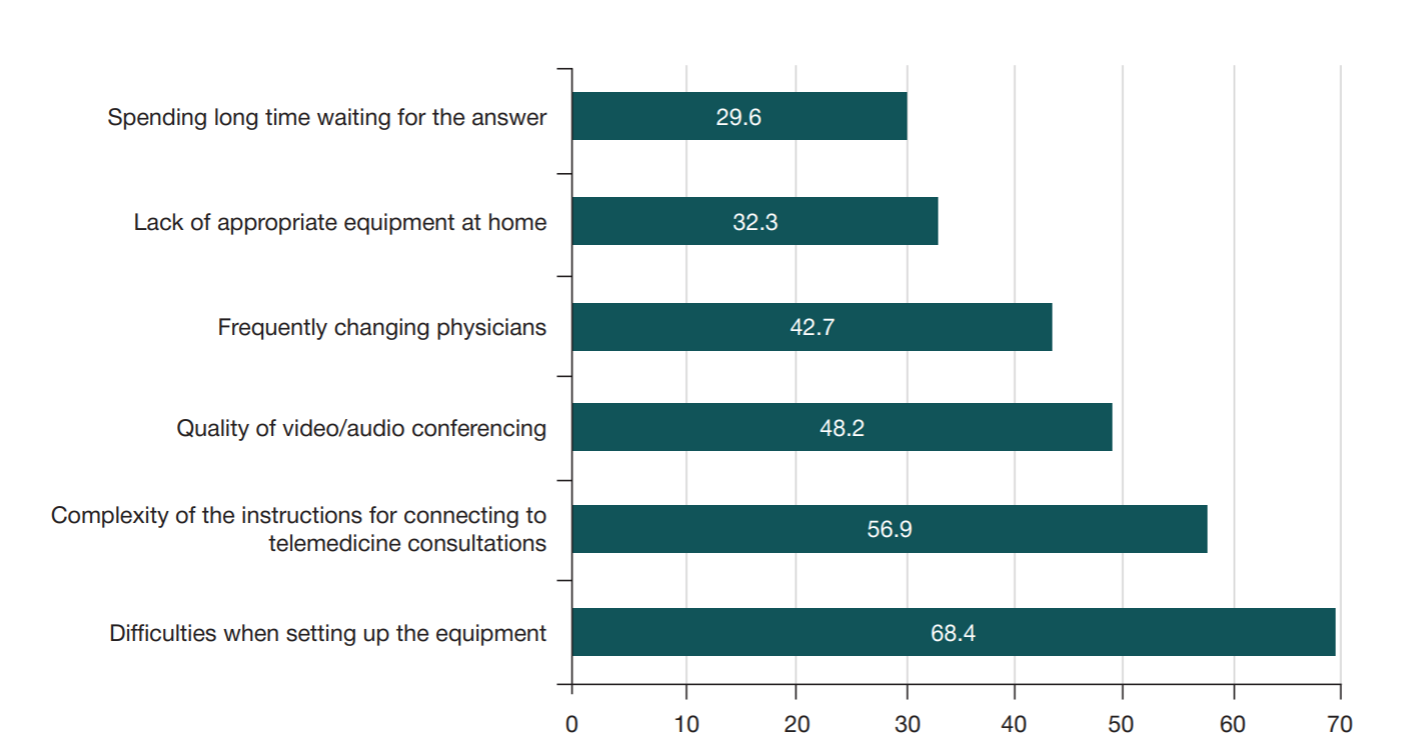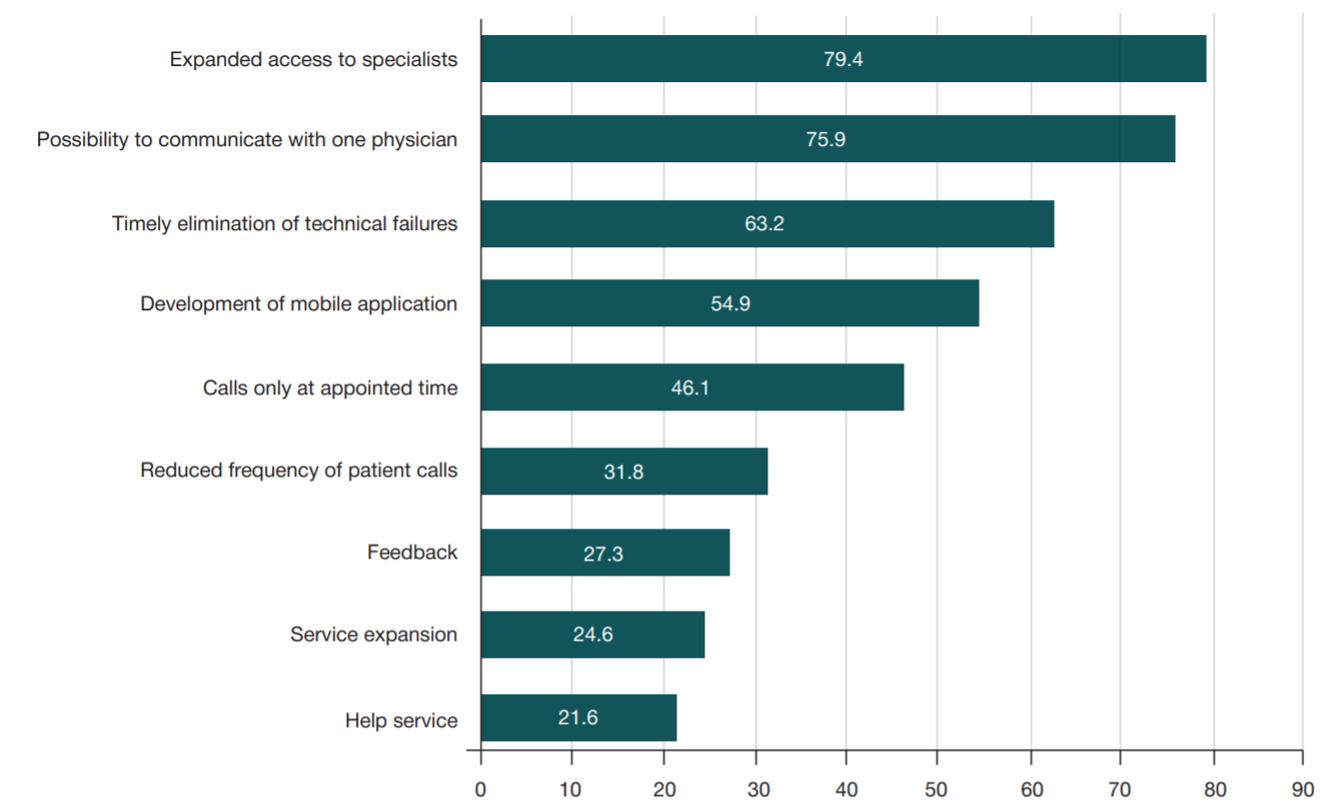
This article is an open access article distributed under the terms and conditions of the Creative Commons Attribution license (CC BY).
ORIGINAL RESEARCH
COVID-19 patients’ satisfaction with quality of medical care provided in the form of telemedicine consultations
1 Pirogov Russian National Research Medical University, Moscow, Russia
2 Consultative and Diagnostic Polyclinic № 121, Moscow, Russia
3 Spasokukotsky City Clinical Hospital, Moscow, Russia
4 Moscow Centre for Research and Practice in Medical Rehabilitation, Restorative and Sports Medicine, Moscow, Russia
Correspondence should be addressed: Elena V Kostenko
Zemlyanoy Val 53, Moscow, 105120; e-mail: ur.liam@85oknetsoke
Author contribution: Polunina NV, Tyazhelnikov AA, Pogonin AV — study concept and design; Tyazhelnikov AA, Kostenko EV — data acquisition and processing; Polunina NV — statistical analysis; Tyazhelnikov AA, Kostenko EV — manuscript writing; Polunina NV — manuscript editing.
Compliance with ethical standards: the study was approved by the Ethics Committee of the City Policlinic № 2 of the Department of health of Moscow (protocol № 9 dated September 30, 2020). The survey was carried out by consent of the patient under full anonymity; the patient was informed that his/her personal data would never be used anywhere else.






